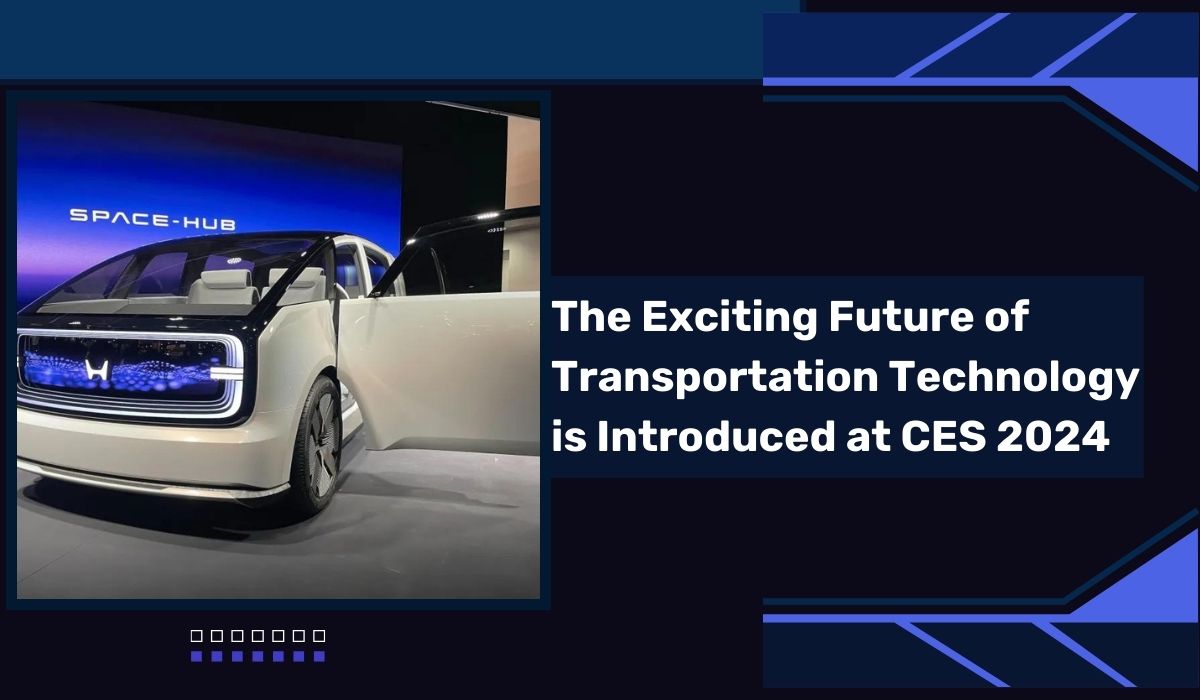
The Consumer Electronics Show (CES) 2024 recently concluded, leaving a trail of technological marvels, and transportation innovations were prominently in the spotlight. Beyond the dazzling displays of electric cars, a myriad of companies and startups showcased their contributions to the evolving landscape of transportation. Automated driving, electric vehicle (EV) charging, artificial intelligence (AI) in software, sensors, aviation, boats, drones, and micromobility were among the diverse array of technologies on display, reinforcing CES's status as a major auto show.
While the Big Three U.S. automakers—GM, Ford, and Stellantis—maintained a lower profile, the event witnessed a strong presence from other major players. Honda, Kia, Mercedes-Benz, Sony, Turkey’s Togg, and Vinfast unveiled their electric concepts and production cars, emphasizing the industry-wide shift towards electrification. The transformation extended beyond traditional automakers, with startups making significant strides. Segway showcased electric scooters and bikes, while innovative startups like Land Energy and Verge Motorcycles presented sporty e-bikes and advanced electric motorcycles, respectively. Eureka Park, a hub for startups, featured Solar Buggy, impressing with its enclosed electric urban mobility vehicle resembling a compact golf cart.Electric aircraft and drones were another highlight, with Pivotal opening orders for its personal electric aircraft, Helix, and companies like Zipline and Wing securing major deals with Walmart. Hyundai’s Supernal and Xpeng Aeroht also debuted their cutting-edge electric vertical takeoff and landing aircraft and a futuristic Land Aircraft Carrier concept.
Unsurprisingly, the surge in electric vehicles brought forth a plethora of EV charging solutions. Alongside established charging infrastructure companies, startups showcased innovative approaches, such as WiTricity's wireless charging technology. The pervasive theme of AI at CES 2024 underscored its omnipresence in transportation. From cars and e-bikes to scooters and electric aviation, AI found its place in various applications. Companies demonstrated the integration of AI into vehicle sensors, voice assistants, and autonomous driving systems, with notable mentions of generative AI, including ChatGPT. Volkswagen and BMW unveiled plans to incorporate AI-powered chatbots into their models, reflecting the growing role of AI in shaping the future of transportation
The recently concluded Consumer Electronics Show (CES) 2024 witnessed a robust display of innovations in transportation technology, extending far beyond electric cars. Companies and startups showcased advancements in automated driving, EV charging, software, AI, sensors, aviation, boats, drones, and micromobility. Notable absences from the Big Three U.S. automakers were compensated by the strong presence of other industry giants such as Honda, Kia, Mercedes-Benz, Sony, Turkey’s Togg, and Vinfast, all unveiling electric concepts and production cars.The event also served as a platform for startups to shine, with Segway introducing electric scooters, bikes, and a GoKart Pro 2 designed for gaming. Startups like Land Energy and Verge Motorcycles presented sporty e-bikes and advanced electric motorcycles, while Solar Buggy showcased an electric urban mobility vehicle resembling an enclosed golf cart. The spotlight extended to electric aircraft and drones, with Pivotal opening orders for the Helix, and companies like Zipline, Wing, Hyundai’s Supernal, and Xpeng Aeroht unveiling groundbreaking concepts.The surge in electric vehicles naturally led to a significant presence of EV charging companies. Beyond the established players, startups showcased novel approaches like WiTricity's wireless charging tech.
The overarching theme of AI dominated discussions and demonstrations at CES 2024. From vehicle sensors to voice assistants and autonomous driving systems, AI's integration was evident. Generative AI, particularly ChatGPT, took center stage, with Volkswagen and BMW revealing plans to incorporate AI-powered chatbots into their models.CES 2024 concluded with transportation technology emerging as a key highlight on the global tech stage. Beyond the spotlight on electric cars, the event showcased a diverse range of innovations, drawing attention to automated driving, EV charging, software, AI, sensors, aviation, boats, drones, and micromobility. Major automakers like Honda, Kia, Mercedes-Benz, Sony, Turkey’s Togg, and Vinfast unveiled electric concepts and production cars, reaffirming the industry's shift towards electrification.
The startup ecosystem was vibrant at CES 2024, with companies like Segway presenting electric scooters, bikes, and a gaming-friendly GoKart Pro 2. Land Energy and Verge Motorcycles displayed sporty e-bikes and advanced electric motorcycles, while Solar Buggy caught eyes with its electric urban mobility vehicle resembling an enclosed golf cart. The event also witnessed groundbreaking developments in electric aircraft and drones, with Pivotal's Helix and deals struck by Zipline and Wing with Walmart. As the electric vehicle landscape expanded, so did the presence of EV charging companies. In addition to established players, startups showcased innovative solutions like WiTricity's wireless charging tech. AI took center stage at CES 2024, with its pervasive influence evident in vehicle sensors, voice assistants, and autonomous driving systems. Generative AI, including ChatGPT, gained attention, as demonstrated by collaborations with BMW, Amazon, and Volkswagen, showcasing the integration of AI-powered chatbots into automotive technology. The event underscored the transformative power of technology in shaping the future of transportation.